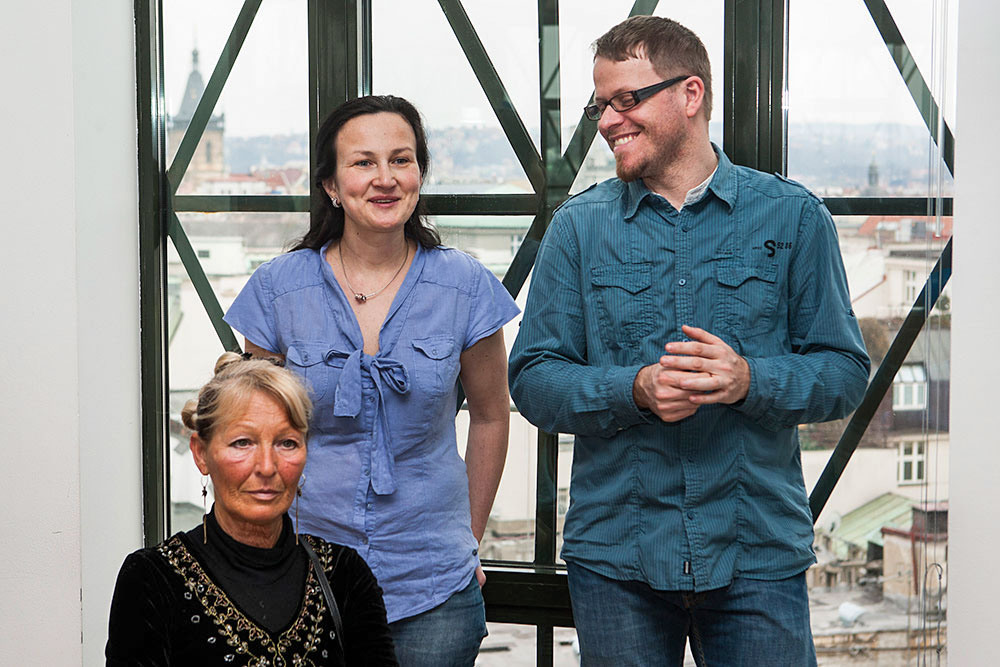
mensanthropist [ men-san-thruh-pist ] noun
a person, who actively participates in fulfilling one of Mensa’s objectives by fostering and utilizing intelligence for the benefit of humanity
PTwenty-five years ago, they were at the birth of the Association Helping People with Autism (APLA), now known as the National Institute for Autism, NAUTIS for short. It has become a lifelong mission for Kateřina Thorová, PhD, and Hynek Jůn, PhD, and today the people they have managed to help number in the thousands.
As they write in their story, NAUTIS is not only an acronym for the organization’s name, it is also a maritime simulator – a tool to help ships at sea find the right direction. Likewise, the organization seeks to guide people with autism and all those who provide care for them, and to support them in a safe and peaceful journey toward a happy life.
How did APLA actually come about and where did you two meet? There are four founder names on the current NAUTIS website, yours are two of them. But who was the bearer of the very first idea?
[Hynek Jůn points to Kateřina Thorová with a smile]
Kateřina: That’s really ancient history. It started in 2000, when I was working as a psychologist at the Special Pedagogic Centre, which provided services to people with intellectual disabilities. I already had experience from my master’s thesis, which was specifically about autism. I had also worked as an international intern in Antwerp, where I learned the basics of diagnostics under a clinical psychologist. I started to implement them in my practice in SPC and to discover people with autism. One day, a young man from school showed up and was interested in working with autistic people, so we hired him – that’s how I met Hynek. At the same time I founded APLA together with colleagues from Moravia. The founders were special educators Věra Čadilová, Zuzana Žampachová, Martin Polanský from Brno and myself.
Hynek: I joined the SPC around 1999. At that time APLA had not been founded yet, but there was already a lot of talk about starting something. I still remember the day when Kateřina came to me at work and said, „We want to start a civic association around people with autism. It will have four sections – pedagogical, psychological-clinical, socio-legal and parental. The pedagogical one will be led by Věra Čadilová, the psychological one by me, the parental one by Pavla Čížková, and we were wondering if you would take over the socio-legal one.“ And I said, „Wow, like me? Yes!“ I was very excited. I wanted to build something and be responsible for it.
What was the motive for starting an official organization?
K: I saw a big difference in the approach to autism here and in the world. I was studying in New York for the last year, and visited a library there while finishing my thesis. In Czechia we had only a thin book called Extrémní osamělost (Extreme Loneliness) by Dr. Růžena Nesnídalová, nothing else. When I went to the library in New York and looked up autism, the librarian guided me and said, „Here you go.“ And there were whole shelves of different books on autism. Of course, that intrigued me, and because I like innovation and challenges, I thought that’s what I wanted to pursue. So I joined the SPC, where I picked up some basics, got a little bit of a sense for it, but within a couple of years it started feeling narrow. I was bound by the rules and the workload, some grants were not available to us. I felt it was time to become independent.
H: For me, the main driver was that there wasn’t a single organization here for the care of people with autism that would be founded by professionals. There was, for example, Autistik or RAIN MAN, but they were all parents organizations. SPC was just about education, it only dealt with school-age children. We wanted to start something professional-based that could provide social services for both children and adults, people with severe intellectual disabilities and people with Asperger’s syndrome.
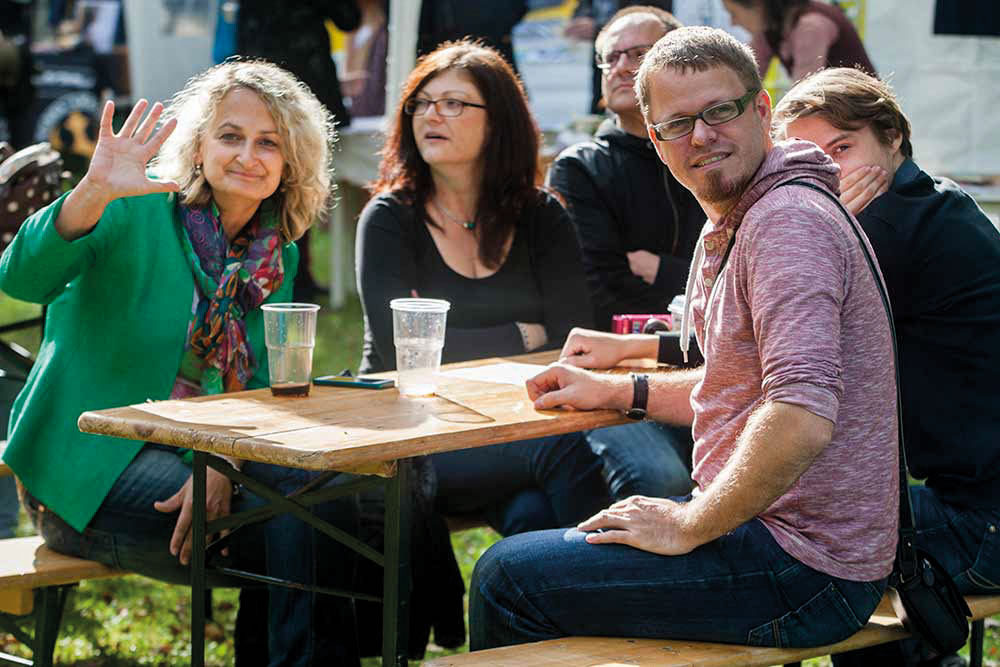
Did you come to autism solely as part of your studies or did you have any personal experience with it?
K: I had a personal experience. My brother was born with a very severe form of autism and was diagnosed at the age of four by Dr. Nesnídalová, one of the first in the Czech Republic. I say a bit exaggeratedly that I chose the topic for my thesis out of laziness, because nothing was known about autism here, so even my opponents wouldn’t know much. But I started to enjoy it a lot, especially because I could create something.
My brother was severely autistic, with no apparent social contact, stereotypical movements, behavior requiring uneasy care, and he didn’t talk at all. He really needed a lot of support. But as time went on and I started to diagnose children with mild forms, it dawned on me that my dad had Asperger’s syndrome. So I said, „Hey, dad, you probably have Asperger’s.“ And he said, „What’s with the Asparagus thing? If I have it, I gotta tell you, people fall into two groups. Those who have autism and those who are stupid.“
H: My sophomore year in college I went to an internship at the Jan Karafiát Church Kindergarten in Prague, where they had integrated one boy with autism. His name was Pepa, and he was always strangling someone, maybe twenty times a day. He had an excellent teacher who worked well with the kids, and that’s what got me interested in the subject. I saw how to work with a child with autism, but most importantly how to work with the healthy children around him so that they accept him and are not afraid of him, and how to work with the parents of healthy children to work together on integration. I later stayed in contact with Pepa’s family as a personal assistant and I served my civilian military service as an assistant teacher in a special school where Pepa moved from kindergarten to first grade.
What was the biggest obstacle or tough reality you encountered when starting APLA?
H: For me, the start-up was interesting. At that time, you had to show a year of activity to apply for a grant. So right from the beginning we had to get paid by parents. The 350 CZK per hour we charged was quite a lot at that time, but it was still possible. It was a powerful experience for me to be able to support myself, even when I left the state organization, and then again when we got our first grant after a year.
The next one came years later, we were NAUTIS by then. In our field in working with people with autism, everything used to be compared to Bohnice (the most known psychiatric clinic in Czechia). We tried to do something different. Whoever started to do something new successfully was better than Bohnice. But as new small organizations were created, I heard several times, „We are better than NAUTIS.“ And they really were, because they were doing it much more intensively and with much better quality than we were in the moloch we grew into. That was the unpleasant clash with reality.
K: I remember going around to schools looking for the first enthusiasts who wanted to teach children with autism. There was always one or two and they were up against the rest of the teachers who said that was bullshit, that they all had intellectual disabilities and were just mentally retarded. It still sticks to this day: „Thor came, she found four kids with autism, she always finds them like that.“ It’s still seen as a fashionable diagnosis and that it’s one child in ten thousand. Clear-cut cases or people with intellectual disabilities are no longer being questioned, but people with above-average intellect, girls or adults, still are. They keep hearing from some „experts“ that this is part of their personality disorder, that autism is a rare thing that they are not entitled to in adulthood. But it is important for people to know their diagnosis. They want to know why they are different and how they should work with themselves.
The big conflict then was with how the organization has grown, and this happens to all organizations, whether for-profit or non-profit. When they grow to some level, it’s time for some corporate processes to be implemented. I find that very painful.
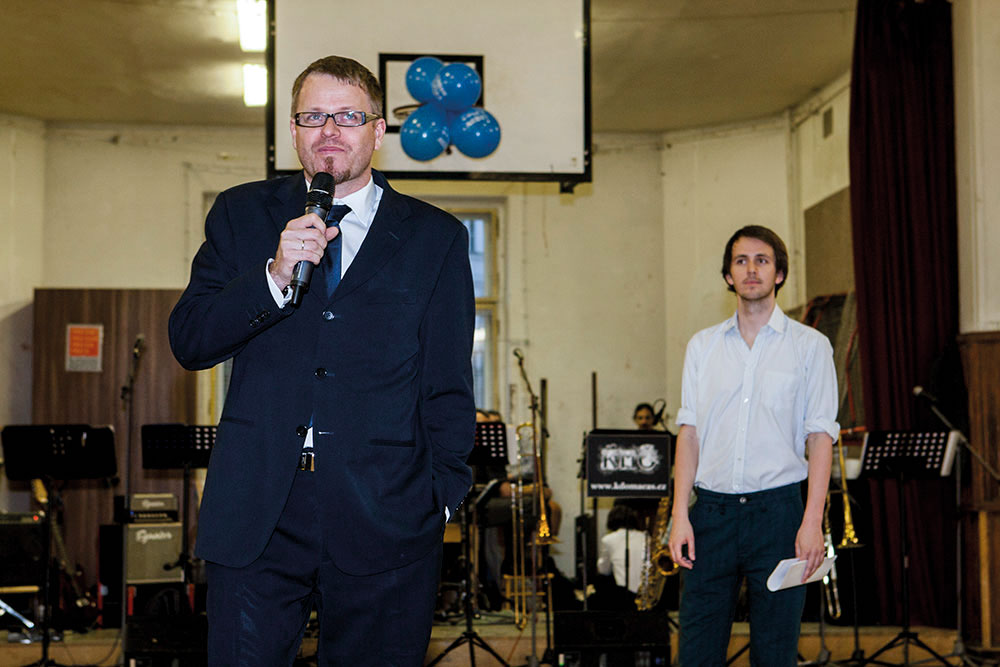
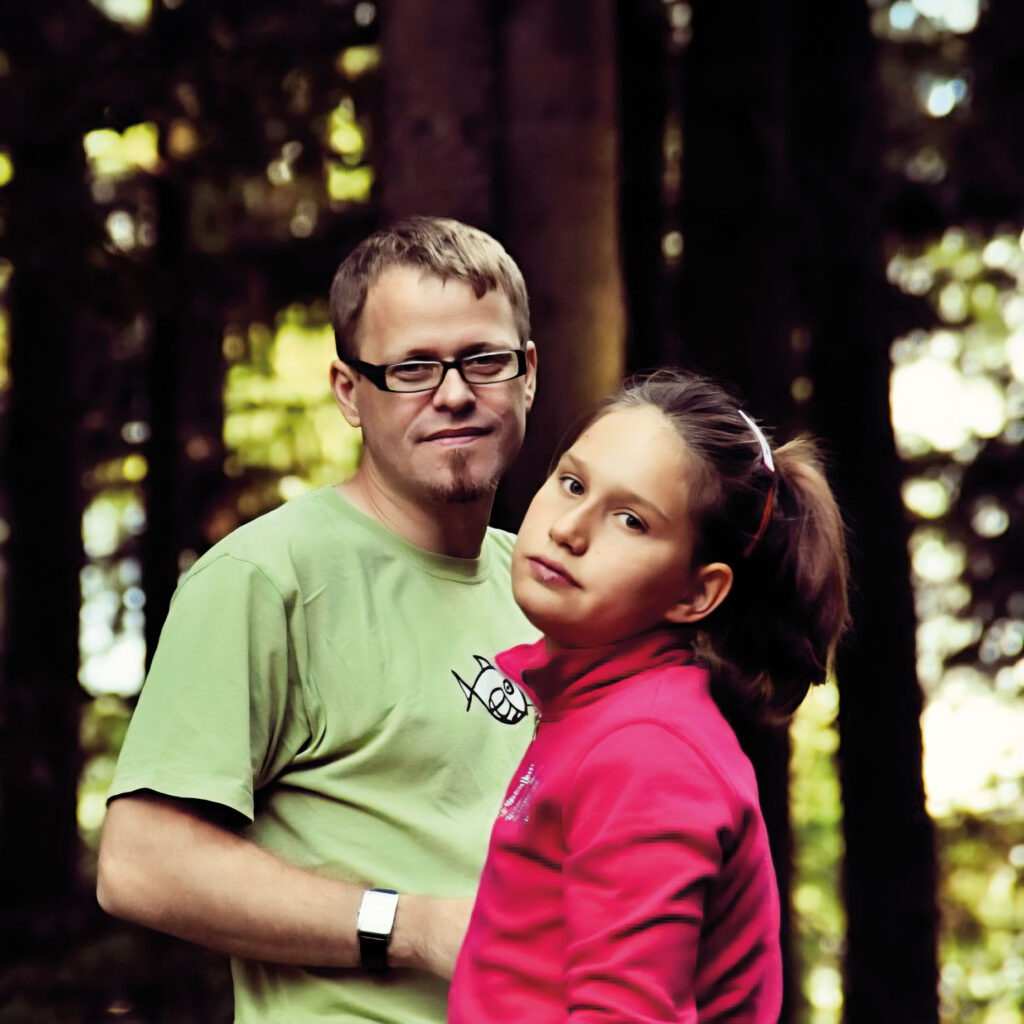
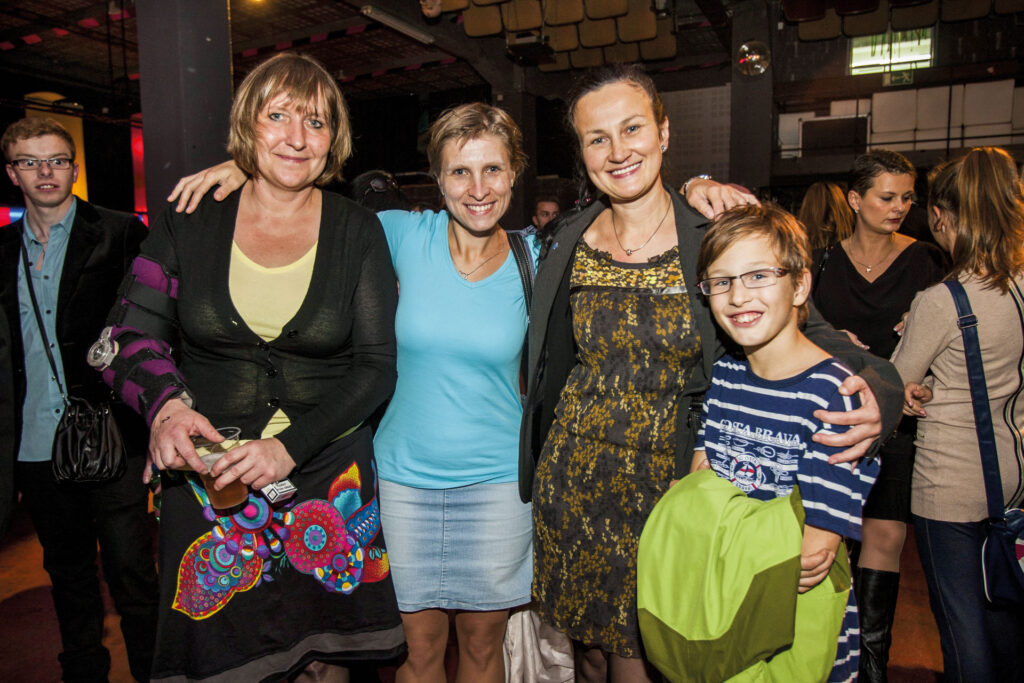
How and why did APLA become NAUTIS?
H: After the change in the Czech civil code, we had to change our form from a civic association to a registered institute, so we thought about changing our name. There were cases, like the special needs home, when officials wondered why we were applying for a national grant when we were called APLA Prague. At that time, we were divided into separate organizations – APLA Prague, APLA South Moravia, APLA East Bohemia and so on. So we figured that the name National Institute for Autism would be more likely to suggest to an official who makes decisions about funding but doesn’t know exactly what the organization does that we provide nationwide services.
Where are you now and what are your next steps?
H: We are at full capacity. Every now and then a centre, be it therapeutic, personal assistance or diagnostic, announces a stop state and people have to wait. We are trying to provide quality services, but we are not able to provide them in the quantity that would be needed, and it’s hard for us to accept that. We have grown rapidly and have gone from four employees to some 350, but the organization hasn’t become more robust, so now we will need some time to stabilize.
K: We definitely need to solidify the organization. It’s important to expand administrative positions and set up processes, management. These things are often kind of not counted on in the nonprofit sector. But if you have a company with 350 people, you can’t do without an HR person or a good IT department, because if you want to provide a good service, you also need new technology and care for your employees. We don’t have that yet and it’s starting to affect our work life a lot.
What are the biggest myths or misunderstandings around autism that you face?
H: In residential social services, I keep hearing: „He’s autistic, so he doesn’t want relationships.“ The vast majority of people with autism want relationships, they just fail at them on a regular basis. That’s why they shut down and pretend they don’t really want them anymore. But when they are offered a relationship acceptable to them, they are very happy to reciprocate. I say to the staff: „Slow down, he’s interested in relationships, he just can’t make them.“
K: I always say the myth of the one symptom. Someone may say „he looks into your eyes, so he doesn’t have autism“ or „he doesn’t have encyclopedic interests, so he doesn’t have autism.“ But autism is always about some sum of impairments and specific manifestations, there have to be more. People have a stereotypical idea of what a person with autism looks like. Sometimes even professionals slip into that. Someone might go to a specialist and ask, „Could my child have autism?“ And he says: „It can’t because it made contact with you, brought you something to show you, looked in your eyes.“ But the diagnostic is not that simple. There is no one sub-symptom that is 100% indicative of autism.
Another myth, for example, is that people with autism lack empathy. They often don’t read a situation well, especially a complex one, but when they do understand the situation, they have feelings just like everyone else and can be very sympathetic, sometimes even showing hyperempathy. They also sympathize with animals, sometimes even with inanimate objects.
H: One more myth is very dangerous. It’s often assumed that medication is an integral part of therapy for care-intensive behaviors. That medication has to be there at all costs. Of course, for anxiety or depression, medication is a great thing, but if the person is maybe just angry because they’re dealing with some relationship stuff, then medication is often unnecessary.
K: Even if he or she has anxiety and depression, the first step should still be therapy or some sort of regimen, and only when that doesn’t work should the choice of medication come in. Then a combination of psychotherapy and medication is best.
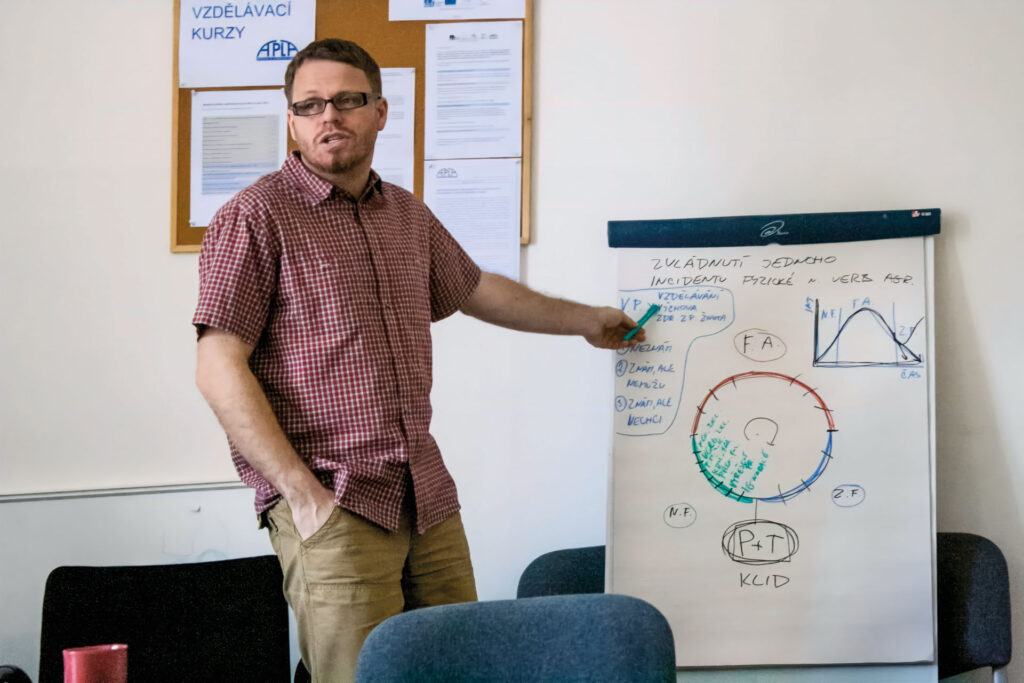
Is the lack of some ability always compensated for by the fact that other abilities are above average, such as mathematical abilities? This is a pretty common image of autistic people in the media and movies.
K: A lot of people with autism are very turned on by this, they say: „I went to a school where they said ‚you’re diagnosed with autism but you’re not gifted at maths, so you probably don’t have it'“ That’s nonsense, of course. There are some people who incline towards maths, others towards languages or arts. That is why we should not fall for the stereotypical image of a person with Asperger’s syndrome who is always an IT specialist or a mathematician. People with autism very often do not have any significant talents.
H: When children with Asperger’s syndrome came to me for therapy who also had some „exceptional skills,“ it was often along the lines of the child knowing all the subway stations in Paris or the departures of trains on some timetable. There are factors other than giftedness involved in these skills. For example, the fact that they have no friends or that they enjoy something a lot allows them to devote a lot of time to a particular area. It is an exceptional skill, but it is not a giftedness in the true sense of the word.
K: I think we’re not talking about causality, we’re talking about correlation. Among gifted people who have IQ really in the highest percentile, there are very often people with Asperger’s syndrome. Uneven development of neural networks in the brain is typical of autism and may be related to specific giftedness. But again, we are talking about a very small sample of people. Many more people with Asperger’s syndrome have average or even below average IQ, which in no way means that they cannot be happy in life or cannot do well in the labour market.
H: For me, the success rate and the satisfaction rate is interesting. We have a lot of people with Asperger’s syndrome who have, for example, extreme knowledge of public transport, and at the same time, because of Asperger’s syndrome, they can’t use that public transport because they can’t stand so many people around. But it still leads to their satisfaction. They are satisfied with the learned skill alone, they don’t need to put it into practice.
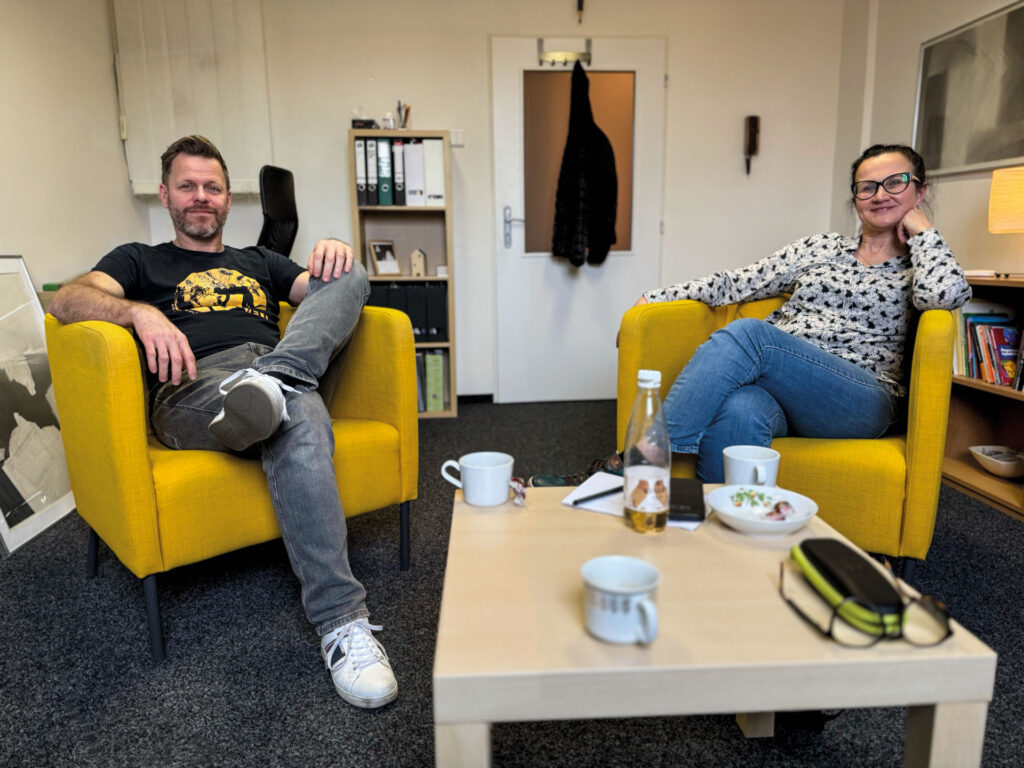
Is there enough data yet to assess whether autism is on the rise or just the number of people diagnosed with autism?
K: There is some data, but we always read at the end of any report that more research is needed. You can see from the studies in the U.S. that it may be saturated now. There was a steep rise at first, then for a while it looked like autism was occurring less in immigrants, in foreign language families, simply in lower socioeconomic status environments. But as diagnostics spread to those groups, the prevalence leveled off. So the biggest increase so far is probably really due to better diagnostics and higher demand for diagnostics.
What about movies that deal with autism? I’ve been very impressed with Temple Grandin or The Accountant. Do you feel that they help with awareness and generate interest, or do you feel that they do more harm by not portraying autism quite right?
H: I think they help. I’m terribly glad that so far there hasn’t been a film made where an autistic person would be some kind of serial killer. Characters with Asperger’s syndrome are always on the side of good, for example, they are criminalists who solve a case in a novel way. Rain Man, in my opinion, helped open up social services for people with autism globally, but of course it also created an extreme shortcut that can be dangerous. An excellent film is Hors normes (The Specials). It shows what real social services look like around people with challenging behaviors. Wochenendrebellen (Weekend Rebels) is another great film for families of children with Asperger’s syndrome. It shows that child’s therapy often takes place through ‚simple living‘ rather than specific therapy sessions. That the whole family has to be involved in the therapeutic process, otherwise there is no point. Sheldon in The Big Bang Theory is also an endearing caricature of a man with Asperger’s syndrome.
K: It’s never black and white, there’s always a blemish. It’s good to remember it’s just a movie, but the opportunity to discuss around it is great. I have a number of clients who have seen The Good Doctor series about a neurosurgeon with Asperger’s. The character is obviously stereotypical in a way, just like Sheldon, but it helps a lot of people identify with him and come to believe that they can live a good life, that they can apply themselves.
Of course, these are stories that only ever show one particular form of autism. But that’s also true of a book written by a person with autism. He writes it as an account of his inner life and often slips into telling: „We autistics have it like this.“ But a lot of other autistic people don’t have it like that. So they too are creating a kind of stereotypical view by describing only their individual experience. It’s great to read the life story from the inside of a person with autism, but we have to remember that everyone is different.
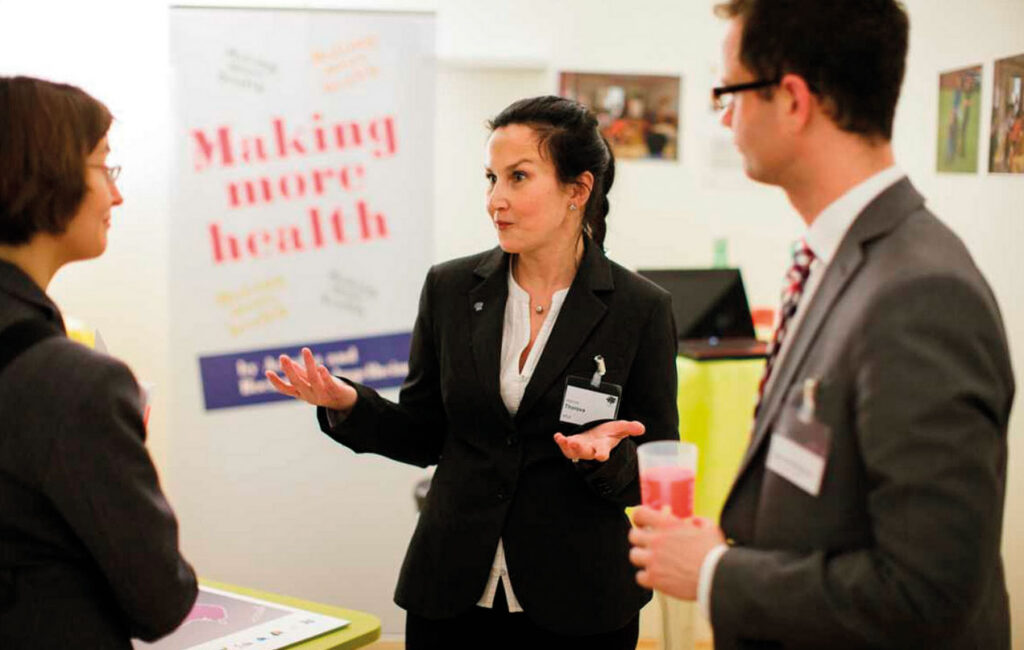
We’ve already said that not everyone with autism is highly intelligent. On the other hand, it is a popular cliché among Mensans that de facto every Mensan is autistic. How true can that be?
K: To answer that well, I would need to survey the entire Mensa population. I don’t know it, but I know that I occasionally meet people with autism who are Mensa members. I think a lot of people are there looking for a social outlet. People with normal social skills have less need to join a special club, regardless of intellect. But if I have autism, and I want some organized activities, and I also have a higher intellect to boot, I’m pretty logically going to head to Mensa. Mensa isn’t actually a representative sample of people with high intellect. It’s people who were eager to find out if they had a high IQ, and signed up for Mensa after passing the test.
H: I would like to add one interesting experience of a colleague who has long been working to get companies to hire people with Asperger’s syndrome. In the beginning, companies give them a lot of support so that a person with Asperger’s can work well for them. But then, sometimes, the colleague comes in for a consultation, say, six months later, and the company says, „We’ve discovered that everyone is a bit autistic.“ That’s a precursor to that two or three months later they stop giving specific support to that person with Asperger’s syndrome, and than he or she stops doing well in the company.
One of the goals of Mensa is to identify and support gifted kids, and the typical barrier is even recognizing that it’s worth thinking about. Is there a similar problem with autism, for example, in the milder forms, that no one thinks about diagnosing the child and then because of that they may lose the opportunity to deal with it?
K: A child with Asperger’s syndrome can be gifted, and sometimes it happens that giftedness is the first diagnosis, not autism. So then we develop the giftedness in some way, but the impairments are not treated, and that’s a shame. I also sometimes encounter children who don’t want to be considered gifted. It needs to be handled very carefully, taking the giftedness into account, but not imposing special treatment on them. It’s better to just offer it and co-create opportunities to use the gift.
So when we discover giftedness, should we also consider diagnosing those weaknesses?
K: Yes, a gifted child can have ADHD or be dyslexic. If they have weak social skills, they may be autistic. It’s often taken to mean that gifted children don’t socialize as much, don’t have as many friends, because as smart as they are, they don’t share the same interests with other children. But no one asks: „Do they understand those social skills at least at the level of their chronological age?“ At our information portal, autismport.cz, one can take a screening test to see if they should also consider autism.
H: That’s also a myth, that if a child is very smart, they don’t get along with their classmates because others are stupid to them, and that’s why they actually fail in relationships. It’s not like that. They usually fail in relationships when autism is involved. In schools it happened to me a couple of times that the teacher said, „This kid doesn’t have Asperger’s, everyone thinks he/she does, but he/she doesn’t. He/she is just smart and that’s why he/she doesn’t want to make friends.“ But the kid clearly had Asperger’s.
K: Of course we’re talking about a spectrum. There are gifted kids who don’t fall under autism, but they still can have weaker social skills. They can also be introverted or have deeper non-social interests. That doesn’t necessarily mean they’re autistic.
Is there an attempt to rate autism with a numerical scale, or is it much more complex?
K: Autism probably has very diverse genetic causes and that also gives rise to different behavioral patterns and clusters of different types of impairments. That’s what we’re working on now, to generate some subtypes of impairments and behavior patterns that would form subtypes of autism. There are about 6,500 variations of what autism can look like. We are all different from each other, we all have different personality traits. So, of course, people with autism also have different personalities and that makes them different from each other.
H: When we started, there used to be a division of autism into mild, moderate, severe, high-functioning, moderate functioning, low functioning, but I think that’s not used anymore.
K: The current emphasis is on the level of support that the person needs. If they have a developmental speech disorder, if they have a developmental intellectual disability, what level of support they need in everyday life. There are three levels – requiring support, requiring substantial support and requiring very substantial support.
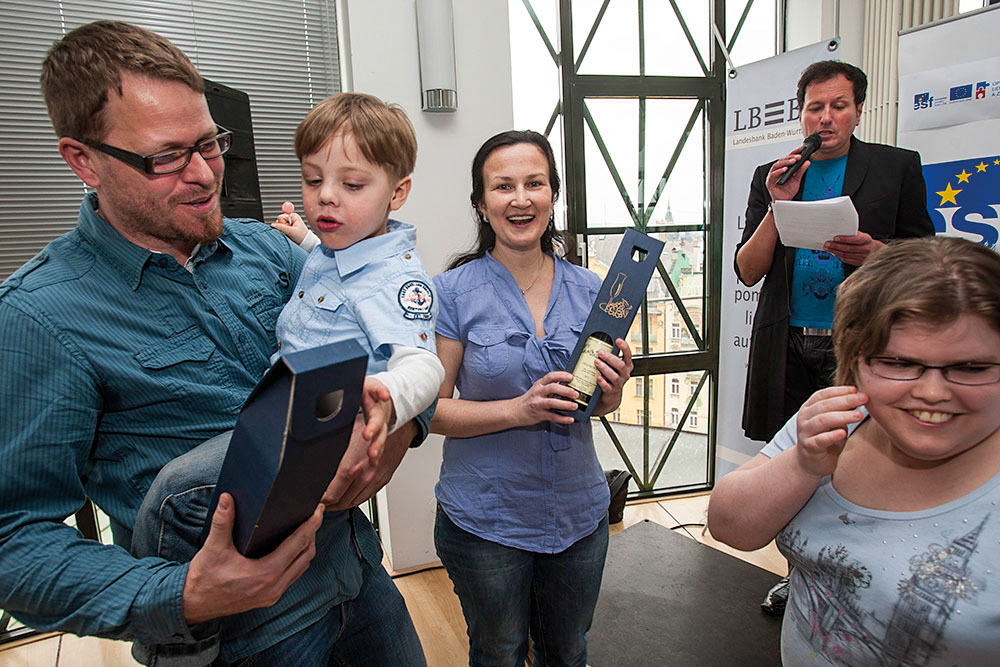
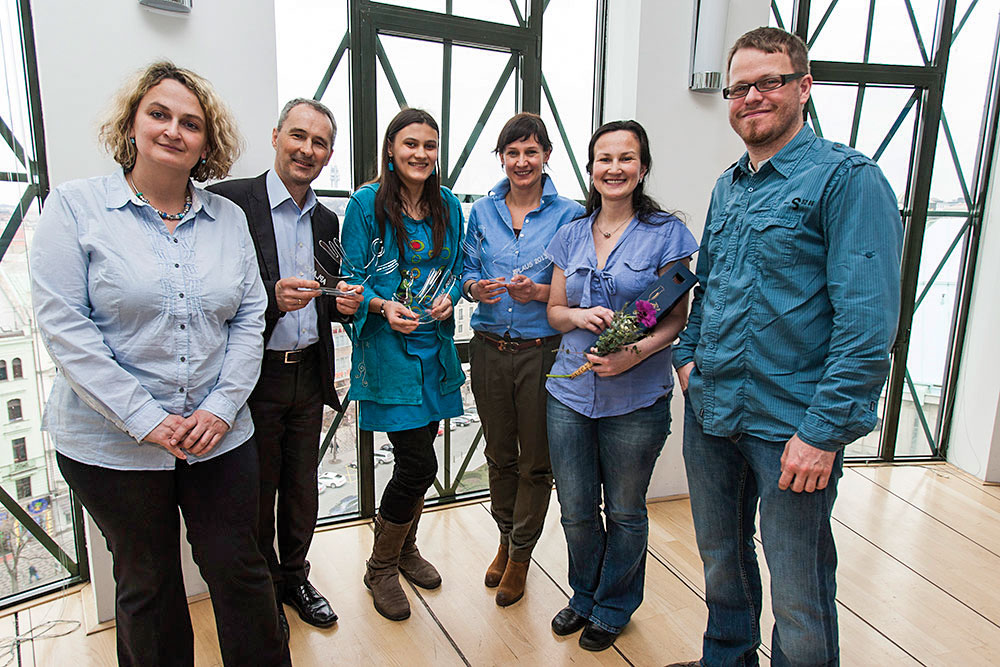
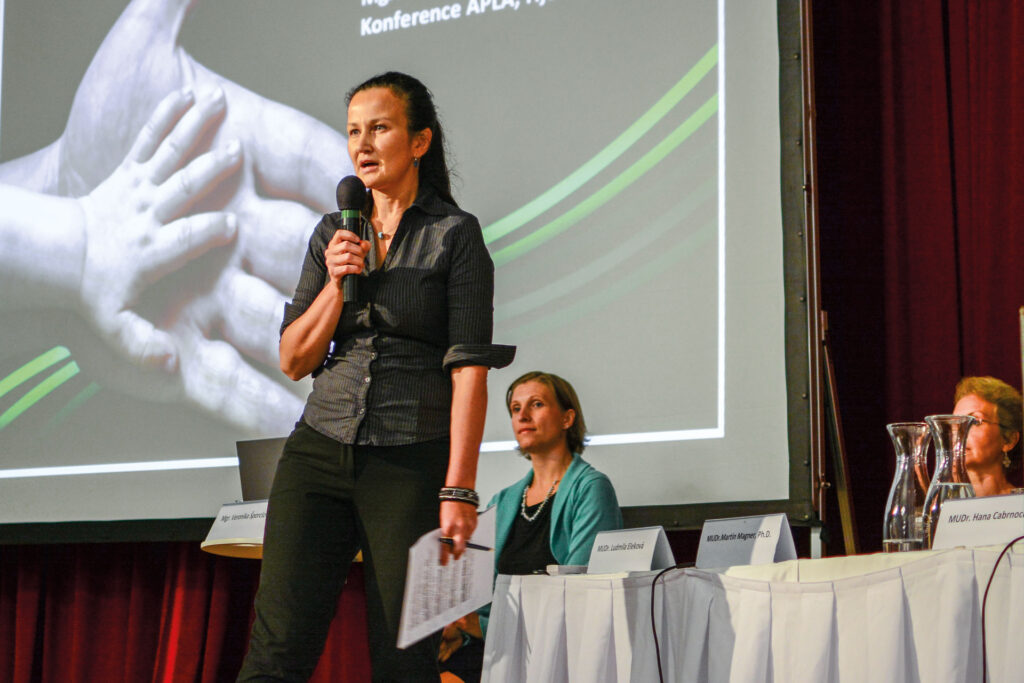
What did you want to be as a child and how satisfied are you with what you’re doing now?
H: I wanted to be a pilot all my life. I even went to the Czech Technical University and it was all about airplanes. My parents were very supportive. At the same time, my mom is a big caregiver by nature, so taking care of people has always been close to my heart. So, I moved away from a career as a pilot towards caring for people and I’m happy with that.
K: When I was a preschooler, I wanted to spin carousels. Then I wanted to be a teacher, and there was a period in high school when I didn’t really know what I wanted to do. I also went to counselling and they told me that I could choose anything except for architecture. That didn’t help me much. Today I think I’m happy with psychology, I really enjoy the work and it suits me, but I could also be an investigative journalist, naturalist, ecologist, photographer or reporter. I would be happy with all of them (laughs).
Do you have any message at the end for the readers of this interview?
H: I’ll use the words of my dad, who told me these two life wisdoms that have stayed in my head. It is important to create, not to destroy. He always told me that creating something is terribly important. And the second was that any jerk can break up a relationship. He said, „Look, I’ve been in a relationship with your mom for fifty-five years and give me a fortnight and I’ll tear it all down easily. But maintaining quality relationships, that’s really a job.“ Maintaining good relationships is important not only for people with autism, and it doesn’t just happen on its own.
K: I not a fan of such messages. They’re too universal recipes for my nature. Perhaps that humanity is about caring not only for ourselves, but for others as well. The strength of a person is not in selfishness, but in the ability to see others, to help when we can, and to be supportive where it is needed. But caring for others does not mean sacrificing ourselves – we must balance what we give with what we need.
NAUTIS websites:
NAUTIS: nautis.cz
Osvětový portál: autismport.cz
Websites of the mentioned associations:
Autistik: autistik.eu
RAIN MAN: rain-man.cz